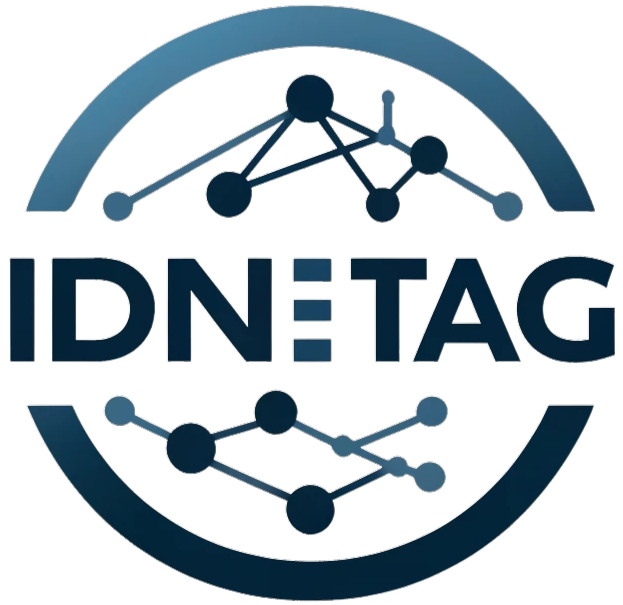Noureddin Nakhostin Ansari
Professor of Physiotherapy – School of Rehabilitation, Tehran University of Medical Sciences (TUMS)
PROFESSIONAL EXPERIENCE:
Academic Positions:
Professor – Tehran University of Medical Sciences (TUMS) (2014-present)
Professor Ansari leads research in neurological rehabilitation, focusing on spasticity management, dry needling, and the use of electrophysical agents in physiotherapy.Associate Professor – TUMS (2007-2014)
He contributed significantly to the development of the neurorehabilitation program at the School of Rehabilitation, mentoring both MSc and PhD students.Assistant Professor – TUMS (2002-2007)
As an assistant professor, he began his journey into academia, teaching various physiotherapy courses, including advanced techniques in neurorehabilitation.
EDUCATION:
PhD in Physiotherapy – Tarbiat Modarres University, Tehran, Iran (1998-2002)
Professor Ansari completed his doctoral studies focusing on advanced physiotherapy techniques, laying the foundation for his research in spasticity, neurological rehabilitation, and electrophysical agents.MSc in Physiotherapy – School of Rehabilitation, Tehran University of Medical Sciences (TUMS), Tehran, Iran (1990-1993)
His master’s work emphasized rehabilitation methodologies, with particular interest in stroke and neurorehabilitation.BSc in Physiotherapy – School of Rehabilitation, Tehran University of Medical Sciences (TUMS), Tehran, Iran (1983-1987)
His undergraduate studies focused on foundational physiotherapy techniques, and patient care, setting the groundwork for his career in both clinical practice and academic teaching.
Leadership Roles:
Research Deputy – Research Center for War-Affected People, TUMS (2020-present)
In this role, Professor Ansari oversees research related to war injuries, particularly in the context of neurorehabilitation and physiotherapy.Head of Neurorehabilitation Clinic – Noorafshar Rehabilitation Hospital (2015-2016)
He led the clinical efforts in neurorehabilitation, managing treatments for stroke and spinal cord injuries, with a focus on spasticity and functional recovery.Lecturer – Physiotherapy Group, School of Rehabilitation, TUMS (1993-2002)
During this period, he was actively involved in teaching and curriculum development, integrating new therapeutic approaches into the academic program.Head of Education Office – School of Rehabilitation, TUMS (1989-1997)
In this administrative role, Professor Ansari was responsible for managing educational activities, including student internships and professional development programs.Head of Physiotherapy Clinic – Razi University Hospital (1987-1989)
As the head of the clinic, he managed clinical operations, providing hands-on physiotherapy treatment to patients while overseeing a team of physiotherapists.
AWARDS AND HONORS:
Top Researcher of School of Rehabilitation, TUMS (2022)
This award recognized his outstanding contributions to physiotherapy research, particularly in the field of neurorehabilitation and spasticity management.17th Razi Research Festival on Medical Sciences – Outstanding Researcher
A prestigious recognition in Iran, awarded for his pioneering research in physiotherapy and rehabilitation sciences.Hakim Jorjani Award – Outstanding Mentoring and Teaching, TUMS
This award celebrates his excellence in mentoring graduate and postgraduate students, and his contribution to teaching innovation in physiotherapy.
TEACHING & WORKSHOPS:
Teaching Experience:
Professor Ansari has been actively involved in teaching for over 30 years at TUMS, focusing on both theoretical and practical aspects of physiotherapy. His main areas of instruction include:
- Neurorehabilitation
- Spasticity management
- Electrophysical agents in physiotherapy
- Dry needling techniques
Workshops:
- Webinars on Research Methodology and Neurorehabilitation (2023-2024): Conducted advanced training for researchers and students in neurological rehabilitation techniques and research proposals.
- Workshops on Dry Needling for Spasticity (2014-2019): Delivered hands-on workshops and theoretical sessions focused on using dry needling to treat spasticity in stroke patients.
- Workshops on Bobath’s Approach in Adult Hemiplegia (2004-2005): Scientific manager and presenter of workshops teaching Bobath’s neurodevelopmental approach to stroke rehabilitation.
RESEARCH INTERESTS:
- Neurorehabilitation: Investigating new methods for improving motor function and managing spasticity in patients with neurological conditions, especially stroke survivors.
- Dry Needling: Researching the therapeutic effects of dry needling on muscle spasticity and pain, focusing on clinical outcomes in patients with poststroke hemiplegia.
- Spasticity: Developing reliable measurement tools and exploring the efficacy of various treatments, including electrophysical agents, for managing spasticity.
- Electrophysical Agents: Studying the application of modalities like ultrasound and laser therapy for the treatment of chronic musculoskeletal and neurological disorders.
EDITORIAL ROLES:
Associate Editor:
- Frontiers in Neurology (2024-present)
- Frontiers in Psychology (2024-present)
- Frontiers in Psychiatry (2024-present)
- Frontiers in Sports and Active Living (2024-present)
Editorial Board Member:
- Physiotherapy Theory and Practice (2024-present)
- NeuroRehabilitation (2015-present)
- Journal of Physiotherapy & Physical Rehabilitation (2015-present)
- INQUIRY (2024-present)
Reviewer for Leading Journals:
- Spine
- NeuroRehabilitation
- BMC Medical Research Methodology
- Physiotherapy Theory and Practice
- Disability and Rehabilitation
- Expert Review of Neurotherapeutics
- BMC Musculoskeletal Disorders
RESEARCH PROJECTS:
Professor Ansari has led numerous research projects in the fields of neurological rehabilitation, stroke rehabilitation, and muscle spasticity management. Some of his notable research includes:
- Development of Objective Measures for Muscle Spasticity: A project aimed at developing reliable and valid tools to measure spasticity in patients with neurological conditions.
- Therapeutic Effects of Dry Needling: Research investigating the neurophysiological effects of dry needling in patients with spasticity following stroke.
- Use of Electrophysical Agents in Rehabilitation: Studies on the application of ultrasound and laser therapy to improve musculoskeletal function and reduce pain.
SELECTED PUBLICATIONS:
- “Motor Status of Children with Motor Skills Disorders” – Holist Nurs Midwifery, 2014
- “Validity of the Modified Tardieu Scale in Post-Stroke Patients” – Journal of Kerman University of Medical Sciences, 2014
- “The Neurophysiological Effects of Dry Needling” – Acupuncture in Medicine, 2017
- “Effects of Radial Extracorporeal Shockwave Therapy on Spasticity” – Disability and Rehabilitation, 2017
- “Clinical Assessment of Ankle Spasticity Using Modified Tardieu Scale” – Brain Injury, 2013
- “The Effect of Pulsed Ultrasound on Chronic Rhinosinusitis” – Physiotherapy Theory and Practice, 2013
BOOKS:
- Adult Hemiplegia: Evaluation and Treatment (2013)
- Pediatric Balance Program (2012)
- Movement Therapy in Hemiplegia: Brunnstrom Approach (2012)
- Rehabilitation Techniques for Stroke (2011)
- Low Back Pain: Prevention and Treatment (2008)
CONFERENCE PRESENTATIONS:
Professor Ansari has been a regular presenter at international conferences, including:
- 17th International WCPT Congress (2015)
- Iranian Neurology Conference: Presenting his latest research on spasticity and neurorehabilitation.
